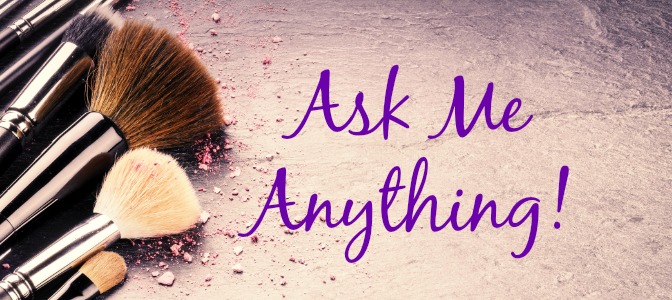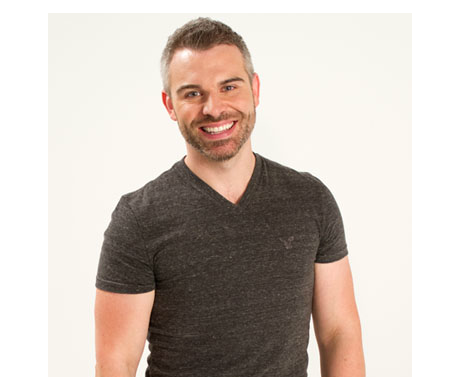
Based in New York City, Nathan Johnson is used to working on famous faces. As the executive makeup artist for QC Makeup Academy, Nathan also ensures that everything we teach is in line with the latest and greatest within the beauty industry. His work has been featured in Glamour, Elle, Harper’s Bazaar, and more.
Earlier in the fall, Nathan sat down to answer some of your biggest questions about what it’s like be a professional makeup artist.
Q: Do you remember your first client? Were you nervous—and did it go well?
A: I was wicked nervous…it was awful! I did a great job on her face, but I was shaking so hard, I pinched her eyelid in my lash curler! She actually screamed and her eye would not stop watering! I wanted to turn to dust and blow away. But, it has never happened again!
Q: I’m starting my makeup kit. Which foundation shades do you recommend buying at first?
A: This is a great question. Foundation will be your most expensive investment. In addition to being super expensive, you do not want to buy it too quickly as it will expire. The best advice I can offer is to buy an assortment of shades in various formulations (liquid, powder and cream because every skin type has different needs) — make sure you have them in a variety of undertones. Just buy enough shades so that you can mix the tones you need for your clients. Also keep in mind that you will need every undertone, as well as a variety of shades.
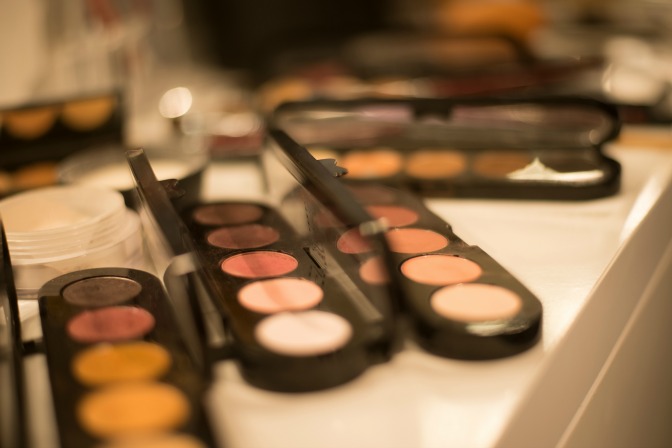
Q: Can we have a quick peek of what products you’re using during New York Fashion Week?
A: I designed the concept for the makeup, which was artfully applied by Janell Geason, the master makeup artist from Aveda (who sponsored the show). All of the products are by Aveda and are in their current line, or will be coming soon.
Q: I am so nervous. I have my first client and I want everything to be amazing! Any advice to calm my nerves?
A: Being nervous is a wonderful thing. It means that you care. I was working on a star last night — a face I have done many times — and even after 20 years I was still nervous! Because I care about doing a good job!
You’re most likely going to be nervous at first. However, once your client is in front of you and you’ve said hello, I have no doubt that you’ll fall back on your training and produce great work. But you do NOT have to be nervous! Why? Because every possible mistake can be corrected with a cotton bud and remover! Your client will never know it happened. Just plan your look and have a TON of fun. And if you are really, really nervous, practice the look you are planning to do on one of your friends a few days before.
Q: The competition is fierce with self-taught, IG makeup artists. How can I use my formal training to differentiate myself?
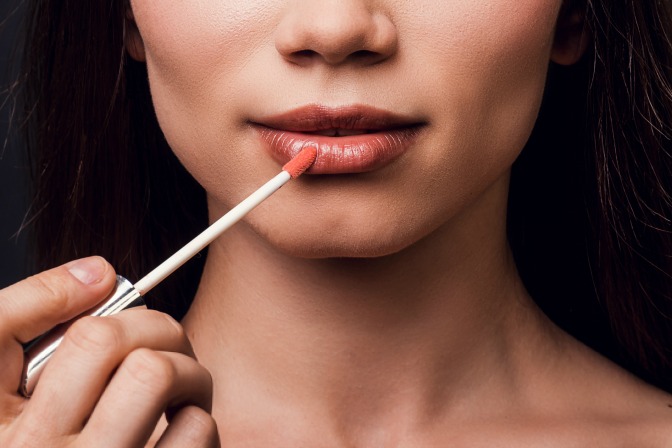
A: If you follow Kevin James Bennett (and many of the other well trained industry leaders), you’ll learn just how much of a problem this is in the industry as a whole. The main problem with people who were trained on Instagram and YouTube is that they do not have any classical training. They were taught by someone who also had no training. And most of the time, the only face they can work on is their own.
An online guru was a special guest at one of the big makeup shows a few years back. She was able to do wonderful work on herself, but her work on others was subpar (and I am being generous with that word choice). Because you are being trained correctly from the ground up, you will be able to do beautiful work on everyone, and you will develop a great reputation because of that. But even before people were self-taught through social media, there were other untrained people doing makeup — people who should not have been doing it. It’s always going to exist! But if you work hard, produce high quality work, and always give it your all, you’ll carve your own place. And you will always have strong training to back you.
Q: How did you cultivate relationships with vendors so that you could participate in something like Fashion Week? I’m a bridal artist but I’m struggling to connect with other bridal professionals.
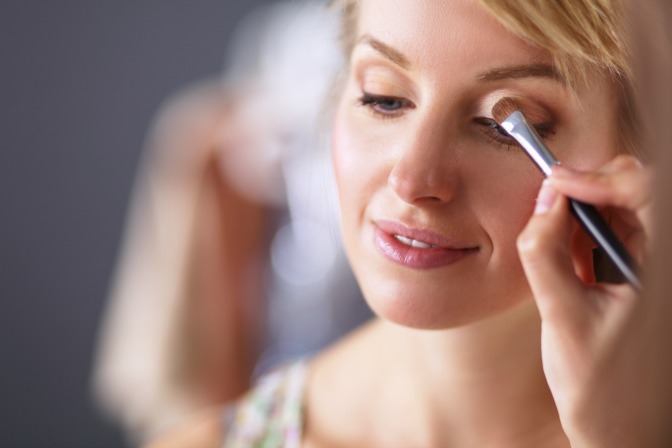
A: Networking and likability. I worked at a very high level (mainly with celebrities) and that lead me to Project Runway. The prestige of that show made for an easy transition to designing for major shows. Now, you’ll have to expand your relationships through networking.
If you want to design for the runway, you need to start by working on the runway. Find out the brands that are sponsoring shows, network with them and get yourself onto the team. Try reaching out to designers and asking if you can begin to collaborate. Sometimes you have to collaborate on lookbooks and shoots to develop that trust.
Q: Which course would you recommend after completing the Pro Makeup course?
A: What courses have you taken? If you have already taken the Master Makeup Artistry course and the Pro Makeup Workshop, I would take the Airbrush Makeup Workshop as well as the Portfolio Development Workshop. Airbrushing is a great skill to add to your menu — and, if you finish the course properly, Portfolio Development will allow you to have images that are ready to compete with the working pros.
